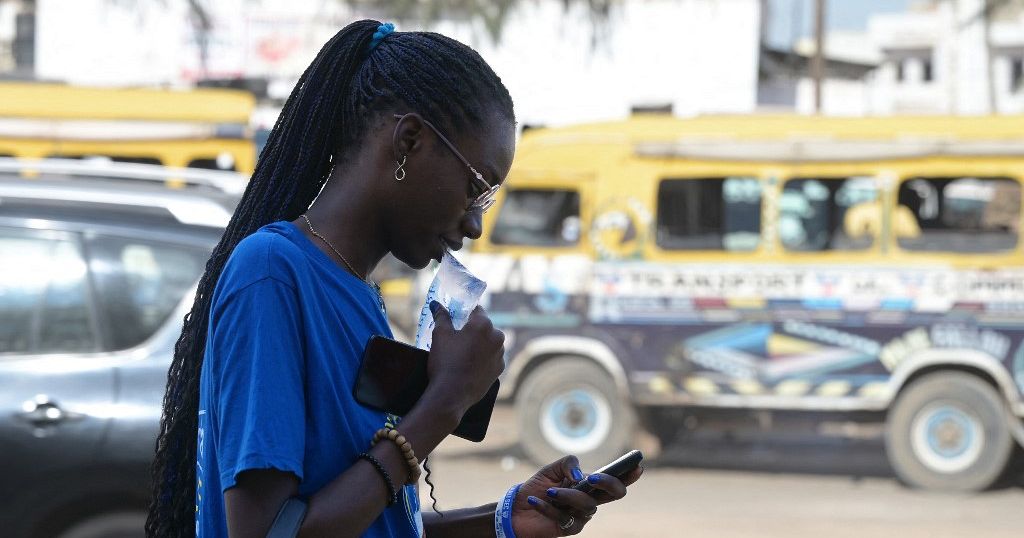
In Senegal, water sachets have become an integral part of life. They are also a key contributor to plastic waste marring the West African nation’s streets and coastlines.
“I have two thousand litre tanks, which means that the two tanks hold two thousand litres. After that, there’s a pump, the pump that draws the water to the machine through these filters you see. There are three filters and a carbon filter. The filter filters the water and the carbon improves the taste,” explained Amadou Diallo, water sachet manufacturer.
Practical, easily purchased in shops or from street hawkers, and cheaper than water bottles, the sachets are an alternative to tap water, which some citizens deem unfiltered.
“At the moment, I prefer to drink sachets of water because I no longer trust the quality of tap water, which isn’t properly filtered. You often see debris in tap water, so sachets are healthier and more accessible,” shared Moustapha, retailer.
In the west African nation, more than 250,000 tonnes of plastic are discarded each year, while only about 30,000 tonnes are recycled, according to a report by the Ministry of Urban Planning.
“Before, we used to worry about rubbish, but now it’s the water bags that invade us most and form the backdrop at the edge of the beach,” deplores Pape Diop, head of an environmental protection association.
Water sachets take 400 years to decompose into microplastics, according to Adams Tidjanis, professor of environmental studies at a private university in Dakar.
“This microplastic (generated by degraded plastic sachets, ed.) can be ingested by stray animals or even sheep and cattle found in the wild, as well as fish. And for some time now we’ve been realising that we were eating microplastic from fish, meat and so on. So what used to be an environmental challenge – plastic bags in nature – has now become a health challenge,” explained Professor Tidjanis.
In an effort to stifle plastic pollution, the government enacted new regulations pertaining to manufacturing authorizations. Individuals or entities that possess existing manufacturing authorizations, particularly for plastic bags, will face no disruption and can continue their operations unhindered.
Instead, new authorizations can be sought for bottled packaging. Additionally, those with existing authorizations for plastic bags are encouraged to consider transitioning to alternative production, as there is a possibility of the government introducing prohibitions with little notice in the future.
Read More: World News | Entertainment News | Celeb News
African News








